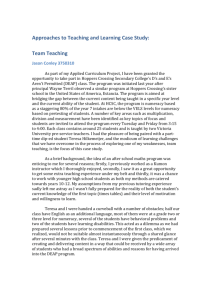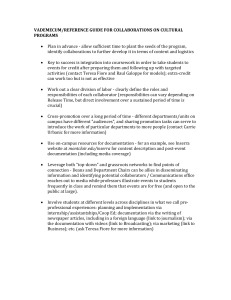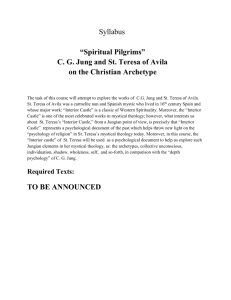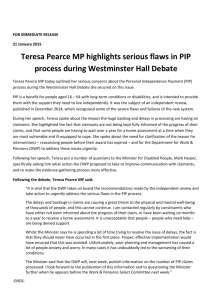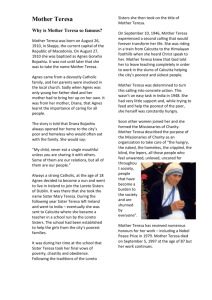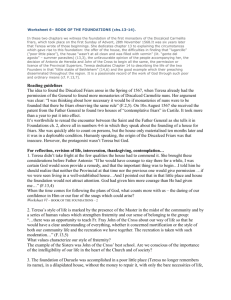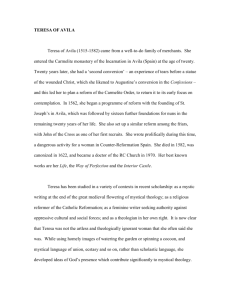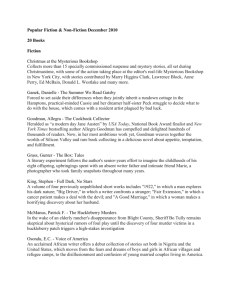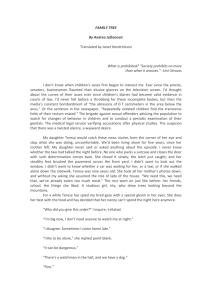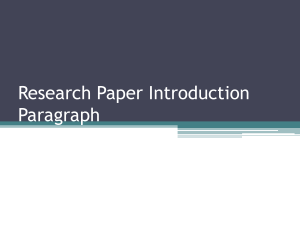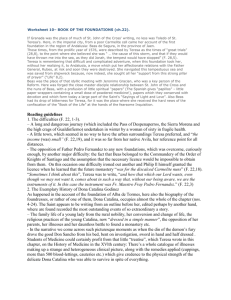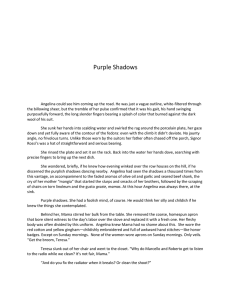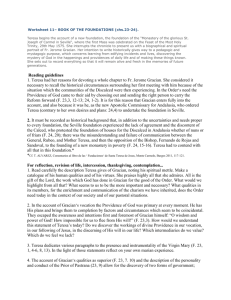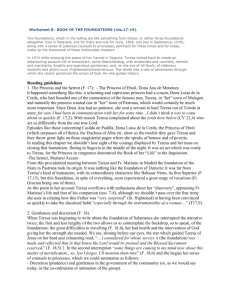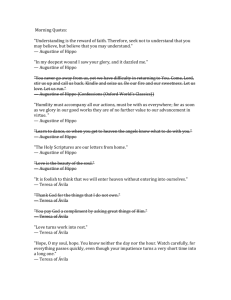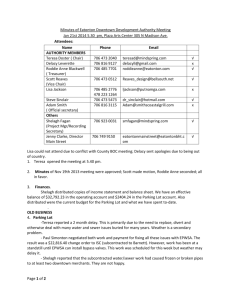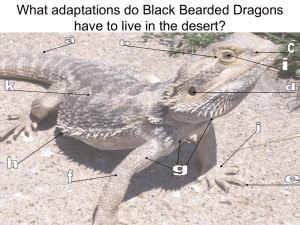Perso Mamma
advertisement
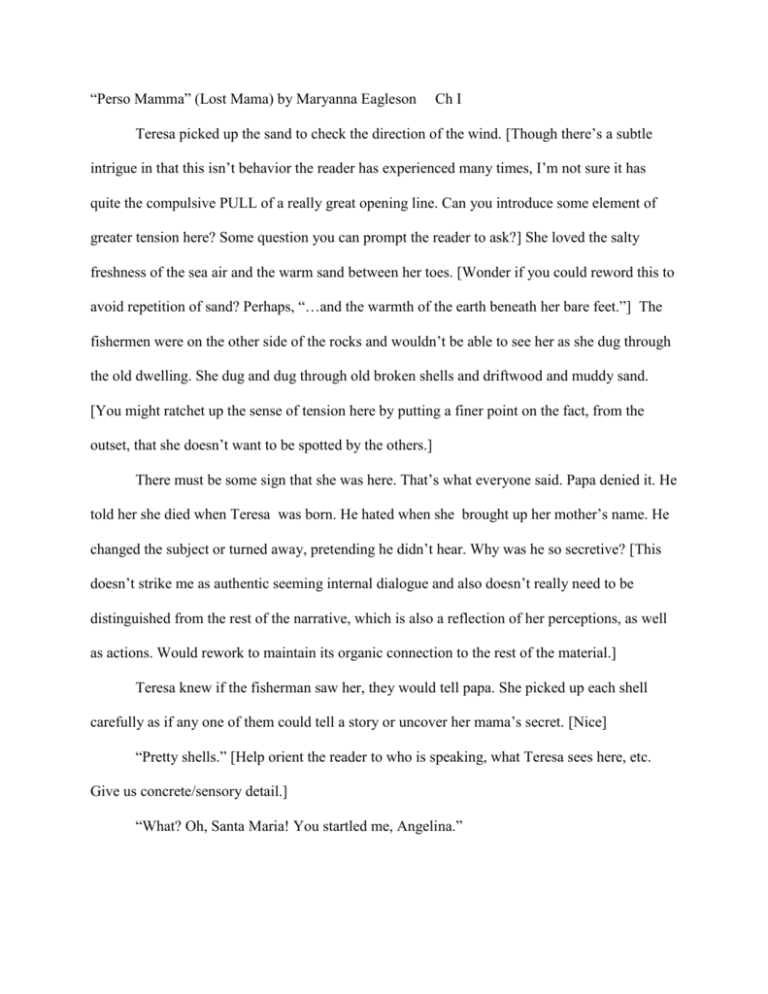
“Perso Mamma” (Lost Mama) by Maryanna Eagleson Ch I Teresa picked up the sand to check the direction of the wind. [Though there’s a subtle intrigue in that this isn’t behavior the reader has experienced many times, I’m not sure it has quite the compulsive PULL of a really great opening line. Can you introduce some element of greater tension here? Some question you can prompt the reader to ask?] She loved the salty freshness of the sea air and the warm sand between her toes. [Wonder if you could reword this to avoid repetition of sand? Perhaps, “…and the warmth of the earth beneath her bare feet.”] The fishermen were on the other side of the rocks and wouldn’t be able to see her as she dug through the old dwelling. She dug and dug through old broken shells and driftwood and muddy sand. [You might ratchet up the sense of tension here by putting a finer point on the fact, from the outset, that she doesn’t want to be spotted by the others.] There must be some sign that she was here. That’s what everyone said. Papa denied it. He told her she died when Teresa was born. He hated when she brought up her mother’s name. He changed the subject or turned away, pretending he didn’t hear. Why was he so secretive? [This doesn’t strike me as authentic seeming internal dialogue and also doesn’t really need to be distinguished from the rest of the narrative, which is also a reflection of her perceptions, as well as actions. Would rework to maintain its organic connection to the rest of the material.] Teresa knew if the fisherman saw her, they would tell papa. She picked up each shell carefully as if any one of them could tell a story or uncover her mama’s secret. [Nice] “Pretty shells.” [Help orient the reader to who is speaking, what Teresa sees here, etc. Give us concrete/sensory detail.] “What? Oh, Santa Maria! You startled me, Angelina.” “Why do you keep coming here? You believe the old witch’s tale that your mama lived here?” “I have to find out. [Watch overuse of direct address in dialogue. Generally, when two people are engaged in a conversation, they don’t tend to say each other’s names very often— unless they’re salespeople! ] Papa wants to marry me to some rich land owner. How can I marry if I don’t know her?” [Could give us a little more sensory detail throughout this scene—how does Angelina act, physically? What’s her expression? What does she do while she’s speaking to Teresa? Help us see her as well as their environment.] “Do you think the answers are in these old broken shells?” “Maybe.” “And maybe she will come back from the dead and give you her blessing?” “Angelina, you don’t know what it is like. You have your mama and your husband and bambinis. You have your life.” “And what a life it is, waking up to screaming babies, hot bakery oven, and no money.” [Nice exchange] [Would be great if somewhere in the scene, we got a more tangible idea of what, exactly, she’s seeking there.] Thanks so much for sharing your work with me, Maryanna! I think you’re off to a compelling start here. The reader can certainly identify with Teresa’s quest for knowledge of her mother in order to gain some valuable insight into herself. And I love that her search has brought her to the beach, which has such symbolic resonance, and that she is looking for answers in seashells, in the earth itself. Very potent. I also felt you did a great job with the dialogue here, which felt crisp and focused without seeming too heavy-handed in terms of conveying information. I do have a concern about a lack of concrete, sensory details here. Other than the fact that she’s at the beach and digging in the sand, I didn’t feel as though I received much threedimensional information within this world. I couldn’t really SEE Angelina, via Teresa’s perspective. Nor could I really see the beach or the workers, get a feeling for the quality or time of day, etc. That aspect could certainly use a bit of boosting so that we really feel immersed in a specific time and place, and so the world is truly brought to life. Additionally, it would probably help us to have some concrete of exactly what Teresa is searching for here. Some specific artifact of her mother’s life? Some proof that she is still alive and walks this stretch of sand? What is she seeking, specifically? And why does finding it feel like a matter of absolute life and death to Teresa? Play with bringing both the physical world and Teresa’s internal world more fully to life, and this opening will likely blossom as a result. Again, thanks so much for participating! I appreciate it greatly and wish you the best of luck with your work!]
